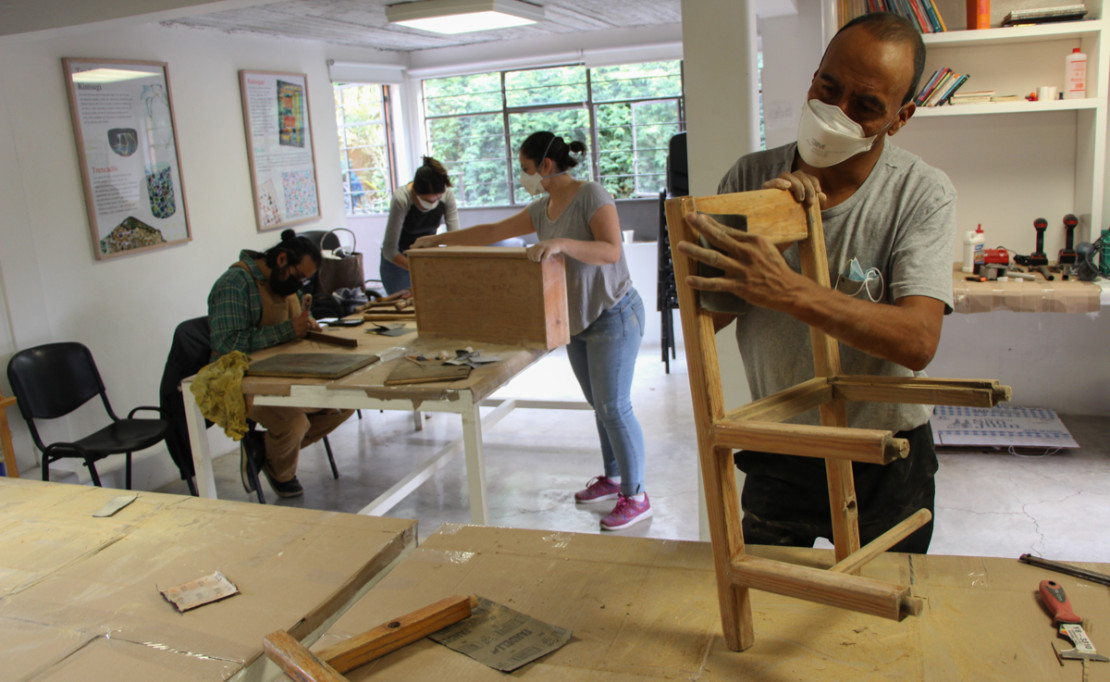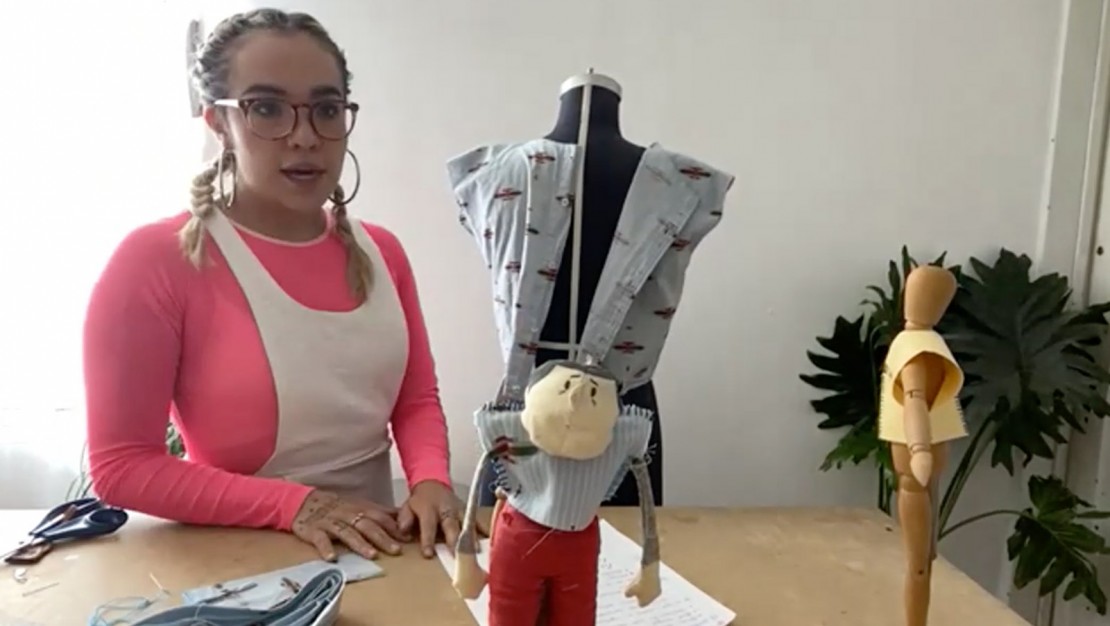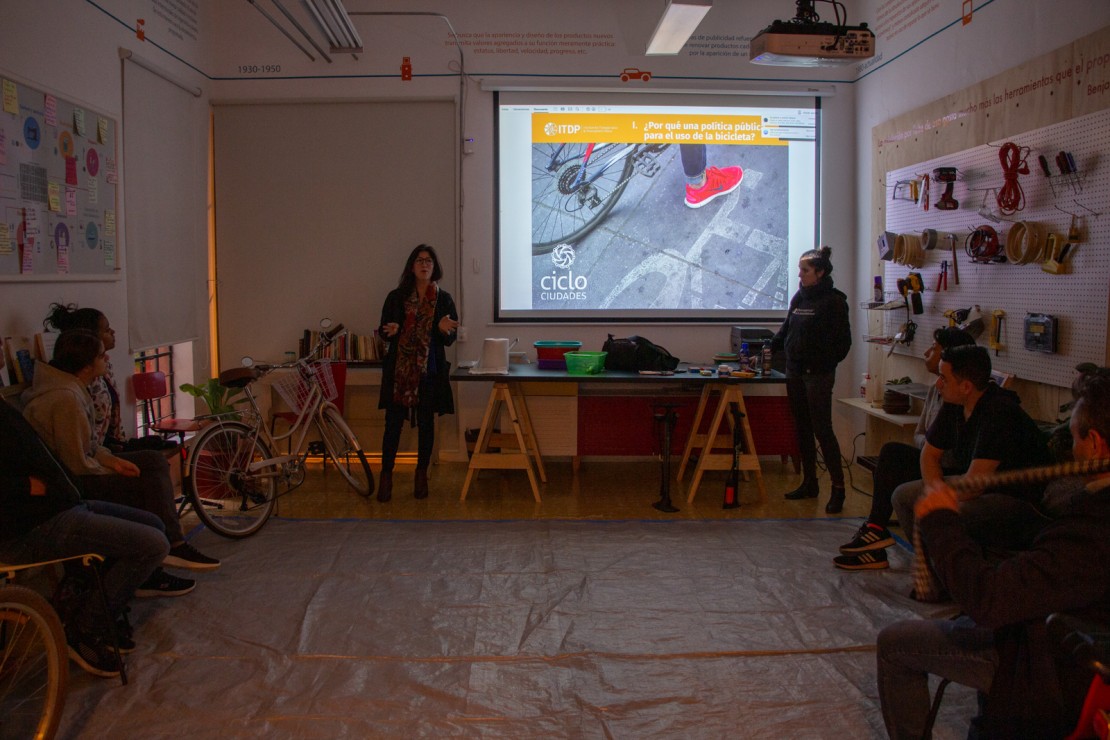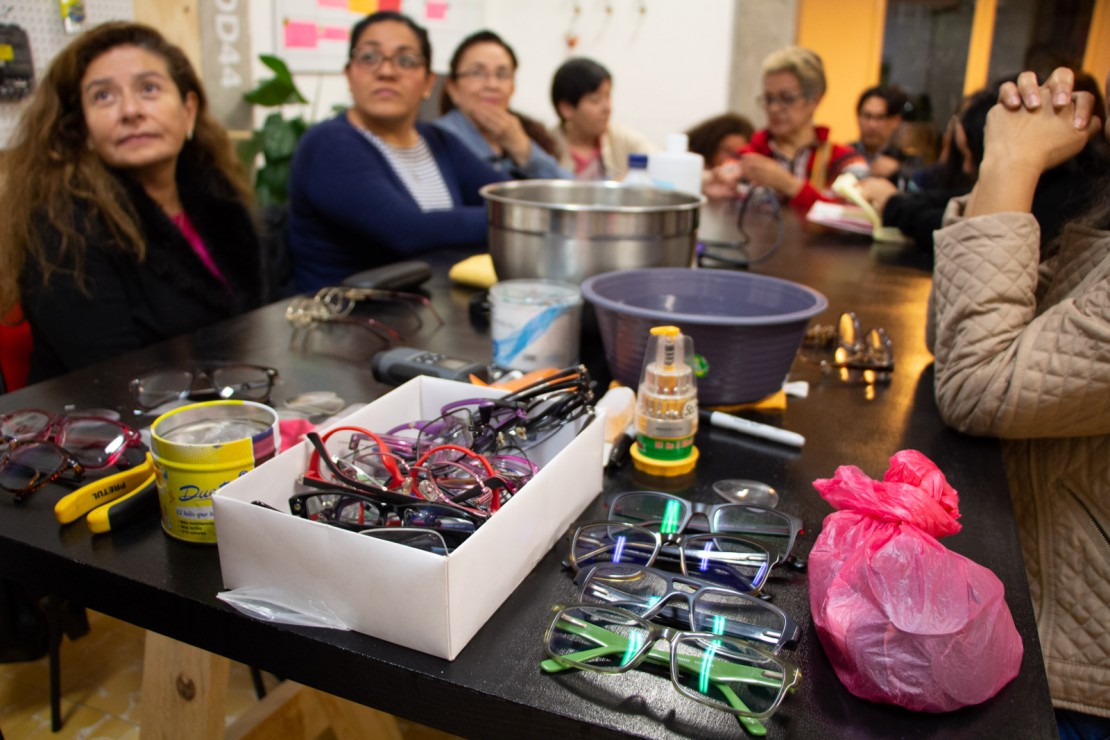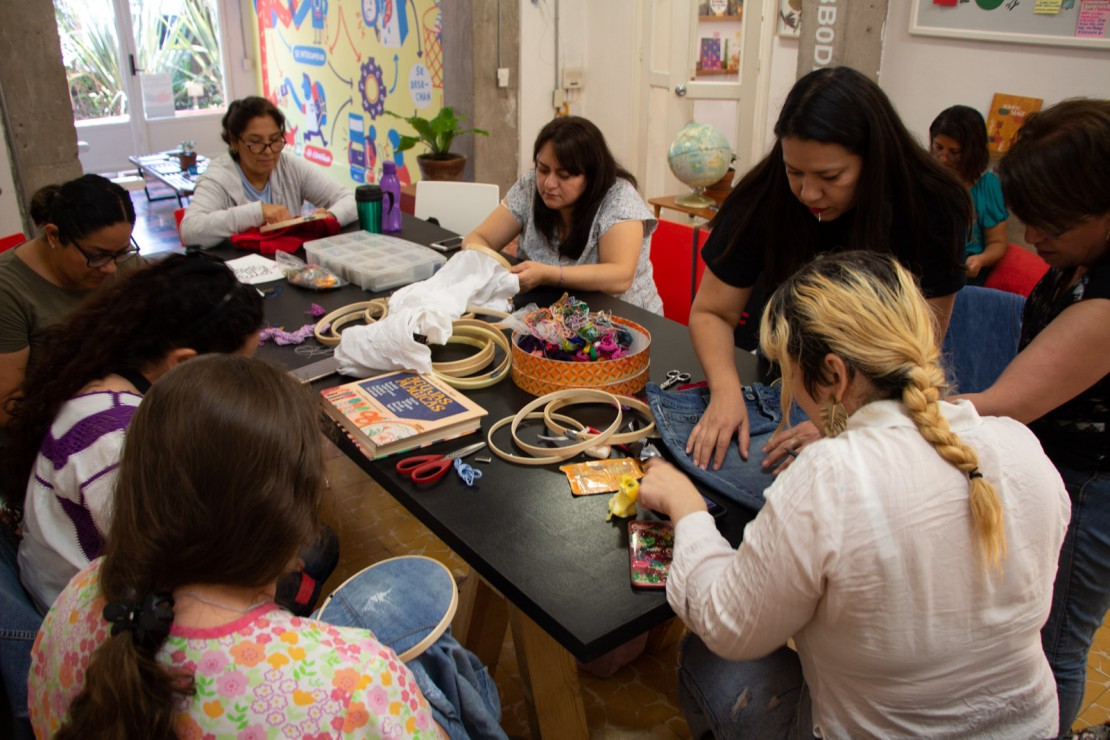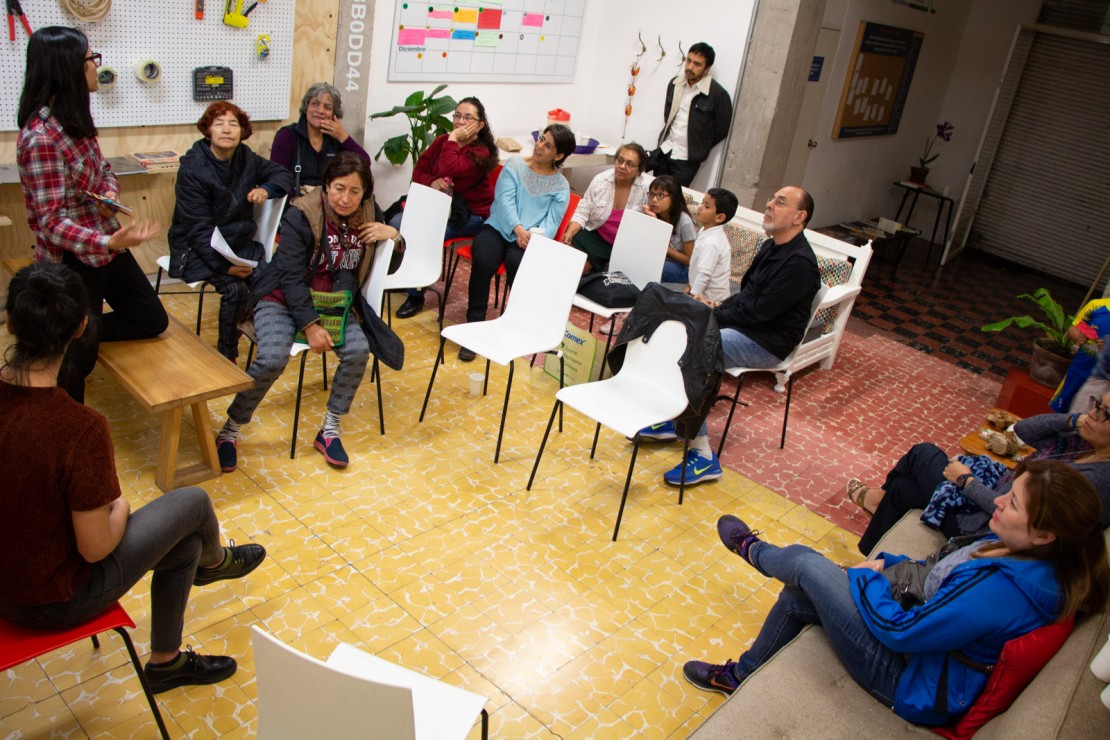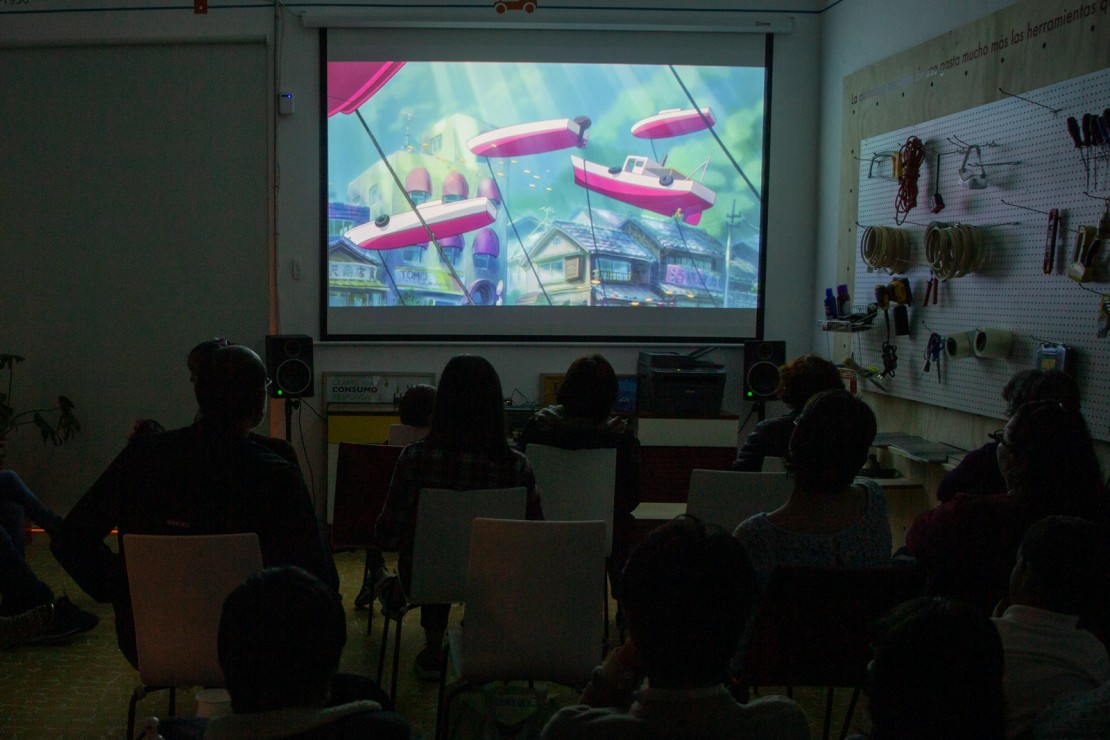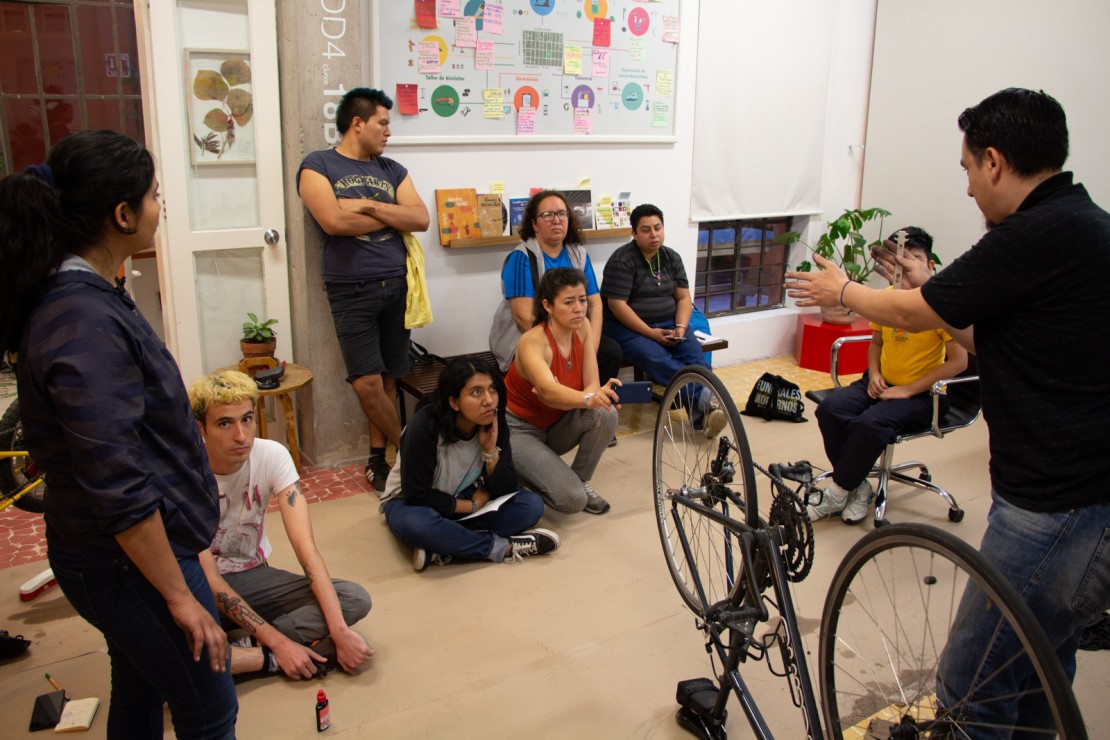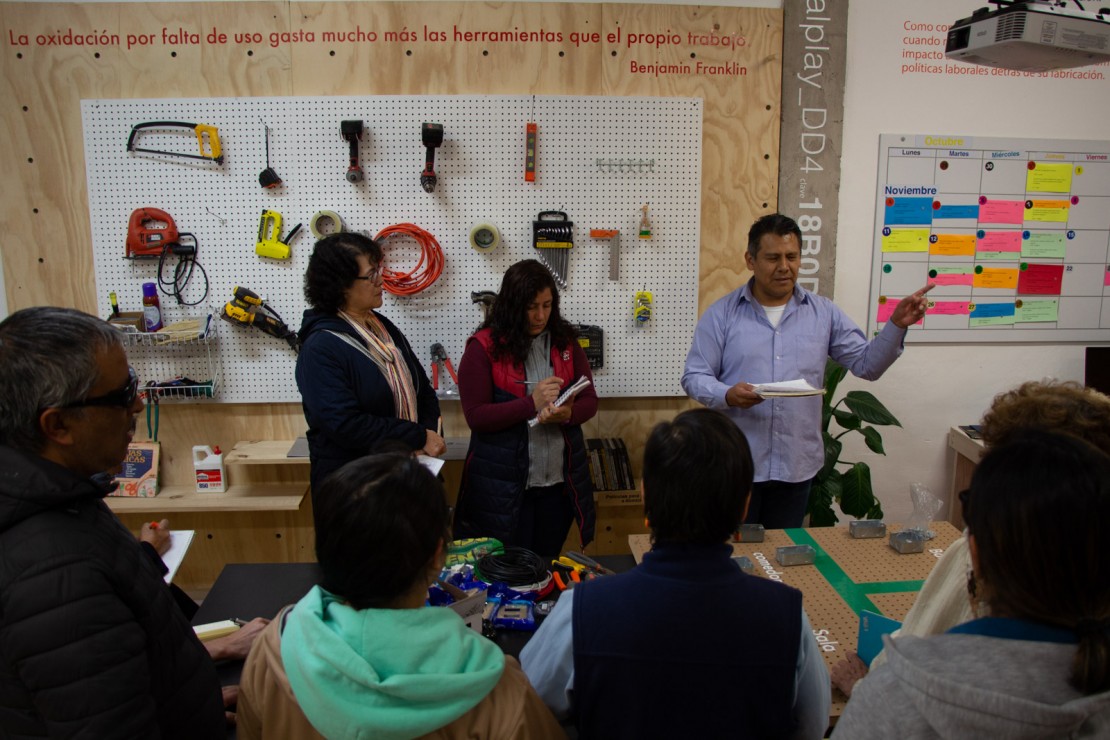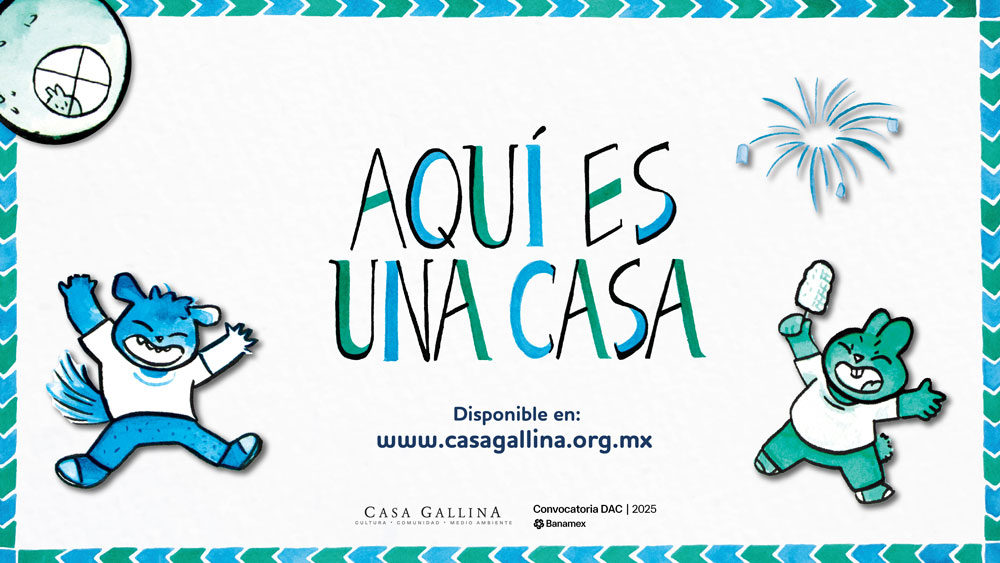Rethinking Consumption, A Culture of Mending
The program also provides for the fitting out of Salón Huev@ as a place where participants can consult materials related to a culture of reuse, leading them to question the validity of expiration dates. In its current form, Salón Huev@ is a place where neighbors can share information, trade off small mending jobs or inform us as to which practical workshops are most helpful to them.
Building Together: Workshop of Basic Elements of Carpentry Tools
Date: 29 June and 6 July, 2024
Facilitated by: Ren Rivera
Ally: Carpintería para morrxs
Participants: 7 elderly inhabitants of Santa María la Ribera
This workshop aimed to link elderly women and men with the use of mechanical working tools which they are usually unfamiliar with due to the gender disparity. To put into practice what they learned, each participant was able to design and build a spice rack, and learn the possible uses of basic carpentry tools. Understanding the use of these tools, the participants proposed different solutions for simple repairs at home.
Communal Production of Seed Cushions
Dates: October 2023
Facilitated by: Ere Lo Gallegos
Participants: 20 inhabitants of Santa Maria la Ribera
Format: in-person
During this workshop, participants learned to make their own seed cushions and reviewed important points, such as: the use of materials, seeds and plants, as well as how to warm or cool the cushions.
Workshop on Maintaining Wooden Furniture
Date: October 20 - November 18, 2022
Facilitated by: Benito T. Juárez, Taller Naranjo
Participants: 6 inhabitants of Santa María la Ribera
Format: in-person
This workshop invited neighbors of Santa María la Ribera to learn to use basic tools and simple procedures to increase the life and improve the appearance of their wooden furniture: sanding, consolidation and finishes. Under the premise that repairing is better than buying, during the sessions the neighbors recognized the relevance of certain items of domestic furniture, being part of the family history and the sensitivity and taste of its members, as well the impact the culture of buying over repairing has on expenses.
Creative Stitches to Recycle, Illustrate and Change the World.
Date: June-August 2021
Facilitator: Andrea Canela
Participants: 12 girls and boys from Santa María la Ribera
Format: mixed
This program was designed and led by embroiderer and illustrator Andrea Canela and directed at girls and boys in a semi-in-person mode, and the neighborhood community, through video capsules for digital networks. The program's objective was to provide the youngsters with a body of creative ideas and critical perspectives to approach the use of single-use plastics and alternative uses. The program taught girls and boys to create an image or design, transfer it to an old t-shirt, experiment with various stitches to create embroidery of different textures and colors, and modify the t-shirt to turn it into a multi-purpose bag. This program sought to put the youngsters in touch with forms of circular economy and discover the value of objects by taking something that could be considered trash, modifying it, personalizing it with one’s own creativity, and giving it new life, which extends its use.
Stitches for Recycling, Patching and Remixing
Date: October 29, 2020
Lecturer: Fernanda Poiré
Participants: 70 neighbors
Format: Online Class
This practical workshop introduced participants to a series of tips and techniques for extending the usefulness of garments and promote the recycling culture among residents of Santa María la Ribera. The purpose of the workshop was to motivate them to customize their own clothing while also developing an awareness of the practical and common forms of circular economy, which can benefit both the personal economy and the environment. Participants learned how to darn invisibly, sew patches and use fabrics to add value to old clothes in their wardrobes. The neighbors were taught about the clothing and fashion industry and its harmful impact on the imaginary and the environment.
Cinema Season: Buy, repair, reuse
Date: November 2019
Coordinators: Lucía and Rosario Barragán
Participants: 39 neighbors
The neighbors Lucia and Rosario Barragán selected films about the environmental problem generated directly by global consumer culture: Comprar, tirar, comprar; The true Cost; No Impact Man; Ponyo; and Pachamama. During the subsequent conversations those neighbors who often frequent cinema seasons at Casa Gallina shared experiences on how programmed obsolescence affects their daily lives, from the material to the emotional. They also analyzed the alternatives proposed in the films and discussed their applicability in their immediate context. On the other hand they mentioned how in indigenous cultures nature is conceived as part of existence and not as a source of resources, a perspective that, according to the neighbors, is vital to help rethink our way of seeing reality.
Embroidery to Conceal Stains and Holes
Dates: November – December 2019
Coordinan: Mariana Villeme y Fernanda Poire
Participan: 19 vecinas
A program divided into counseling for children and adults in which participants learned the basic stitches of the technique of hand embroidery and then applied it to repair garments that they each wanted to repair. As the lessons advanced the coordinators fostered and promoted the skills, needs and interests of each participant. In turn the groups became integrated naturally and supported each other - finding embroidery to be an activity that, due to its characteristics of concentration, delicacy and relaxation, is ideal to encourage conversation and create bonds. It is also worth noting the strong interest of children in learning this technique, which is why activities are prepared to provide some continuity that addresses the interests that participants gradually discovered they had.
Electrical Installations and Maintenance Tips
Date: November 13th, 2019
Coordinator: Santos González
Participants: 13 neighbors
The neighbor Santos González shared basic theoretical principles on the operation of electricity in the house and taught some of the neighbors how to install a simple switch and three-phase switch. He also shared useful advice on what they need to know when they go to a specialist to fix electrical faults. Finally he gave safety and general maintenance advice, adapting this to the characteristics of the participants' homes.
Basic Bicycle Maintenance Tips
Date: November 27th, 2019
Coordinator: Jorge Mendoza
Participants: 12 neighbors
The neighbor Jorge Mendoza advised the attendees on how to change tires, lubricate chains and brakes and clean their bicycle’s transmission. He also gave them public cultural advice for those who travel by bicycle and explained the differences between the types of bicycles on the market, with the aim of understanding which one best suits the needs of each participant. He explained the timescales of periodic maintenance necessary according to the use a bicycle receives. Finally, he noted the interests of each participant to organize a second session in which other necessary aspects of the technical maintenance of bicycles will be addressed.
Film series: From Work to Affections
Dates: February to March 2020
Coordinated by: Alejandro Guzmán
Participating: 120 neighbors
Filmmaker and neighbor Alejandro Guzmán selected four films that, from different perspectives, pose narratives in which the protagonists question their morality and daily life in the face of economic, health, emotional and identity needs. After the projections, intense debates took place between the attendees about how economic and free time precariousness impose difficulties for people to value aspects that bring meaning to life: from their family and personal relationships, to their individual interests and as members of a community.
The films screened during this cycle were: Parasite (Bong Joon-ho, 2019), Toni Erdman (Maren Ade, 2016), The Farewell (Lulú Wang, 2019) and The Delay (Rodrigo Plá, 2013)—the film’s director was present during this last event.
Electrical Installations and Maintenance Tips
Dates: February 6 and 13, 2020
Facilitated by: Santos González
Participants: 12 neighbors
This workshop was based on the concerns, doubts and interests presented by the residents who attended a previous consultation also facilitated by neighbor Santos González, this time the workshop extended to two sessions, in which the participants made an apartment’s electrical circuit scale model.
As a natural follow up of the coordination of several counseling sessions on topics such as: home repair and maintenance of electrical installations, clothing, glasses, bicycles, kitchen utensils, amongst other from October 2019 to March 2020 -in addition to producing a series of visual contents on the culture of repair and conscious consumption—; Casa Gallina began a program that includes equipping one of the classrooms as a permanent technical learning workshop related to repair and sustainability.
Know Your Sewing Machine
Dates:February to March 2020
Coordinated by: Mariana Villeme
Participants: 18 neighbors
Last year, while teaching Embroidery to Conceal Stains and Holes, designer Mariana Villeme picked up on the participants’ desire to learn to use their own sewing machines. Based on these concerns she proposed and implemented this workshop, in which each neighbor attended with her own sewing machine to learn how to make hems, enlarge and reduce the size of pants, add or expand pockets and put in zippers, as well as how to make garments, bags, covers and scarves from recycled materials. During each session, Villeme shared general information about the current state of the fashion industry and its relationship with labor exploitation, pollution and cultural appropriation; shedding, on the other hand, light on alternative practices such as clothing exchange, collective repair and local production of garments.
Basic Bicycle Maintenance
Date: February 5, 2020
Facilitated by: Jorge Mendoza, Clara Vadillo and Sonia Medina
Participantes: 11 neighbors
The neighbor Jorge Mendoza—having already facilitated a session on Basic Bicycle Maintenance—followed up on the expressed interests of participants and proposed a complimentary session on transmission and braking systems' maintenance. Previously, Clara Vadillo and Sonia Medina from the Institute for Transport and Development Policies, had a conversation with the participants on the rights and obligations of the urban cyclist.
Let's Make a Shirt
Dates: May 16-17, 2020
Coordinator: Mariana Villeme
Participants: 17 neighbors
Format: Online class
A group of kids accompanied by their mothers learned how to transform an adult’s shirt into a garment adjusted to their size and preferences. The class was led by fashion designer Mariana Villeme.
Cleaning Products Workshop
Dates: July 25, and August 15 and 29
Facilitated by: Leticia Flores
Participants: 70 neighbors
Format: Online classes
This workshop brought together people interested in learning how to make simple and practical sanitizing hygiene products from natural soap and plant preparations. It was held over video conference by neighbor and biologist Leticia Flores and 70 Santa María la Ribera residents attended.
